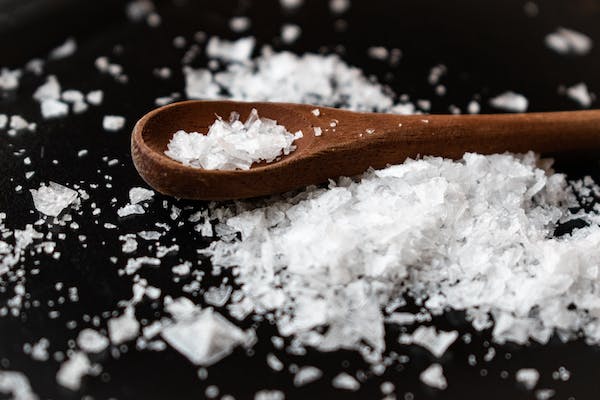Health Benefits Of Celtic Sea Salt | Standardsalts 2022

The Main Health Benefits Of Celtic Sea Salt
Using Celtic sea salt in recipes not only adds a unique flavor to your food, but also has several great health benefits. It can help heal skin damage, promote healthy cell growth and relieve joint pain. Natural salts such as Himalayan sea salt, Celtic sea salt and Fleur de Sel are used by many people nowadays because they are very healthy.

Celtic Sea Salt
Celtic sea salt is salt extracted from the Celtic Sea off the coast of France. Sea salt is traditionally extracted by evaporation and drying in the sun. It has a slightly moist consistency and retains more moisture than refined table salt. Sea salt can also be dark grey in colour, rather than white or pink like other salts. This is due to the high mineral content which is retained as the salt evaporates. Sea salt is therefore valued as a source of many important trace elements such as magnesium, iron, manganese, zinc, iodine and potassium.
Although this sea salt is sold only on the west coast of France, most of the sea salt sold under the trade name Celtic Sea Salt is harvested in other parts of the world.
Celtic sea salt laid out on a table.
Celtic sea salt is high in potassium and therefore promotes good health.
Benefits Of Celtic Sea Salt
Celtic Sea Salt has unique properties depending on its location and geology, and many people like the taste. The crunch of sea salt is particularly appreciated when used for baking and serving. Celtic sea salt is a very strong salt with fine particles and a salty taste.
However, it has also been used for centuries for a variety of health benefits.
Healing Skin Wounds
Celtic sea salt is a popular remedy for soaking and cleansing damaged skin. It is also recommended as a defoliant. The salt itself has bactericidal properties and the essential minerals act as a balm on damaged skin, soothing inflammation. Salt cleansing is recommended for rashes, acne and rosacea. However, it is advisable to apply a moisturizer immediately after the treatment, as repeated treatments can cause dryness of sensitive skin.
Promotes Healthy Cell Growth
Celtic sea salt contains 92 essential trace elements. Twenty-four of these minerals are considered to be essential for many of the body’s basic functions. Deficiencies can cause symptoms such as muscle cramps, nerve disorders and brain damage. Sea salt better removes fluids from the bloodstream and throughout the body. Consumption of salt can cause fluid retention in the joints and can lead to swelling or kidney problems.
Reduces Mucus
Celtic sea salt is an excellent desiccant and can help reduce inflammation of the nose and sinuses and mucus build-up in the lungs. It is also recommended for the treatment of dropsy and joint fluid retention.
Joint Pain Relief
Researchers recently found that bathing in a salt bath with a salt content of at least 25% relieves joint inflammation caused by osteoarthritis. Low-salt solutions can increase inflammation, while high-salt solutions dry out the cells around the swollen area and reduce inflammation.
Iodine Is Essential
Iodine is a chemical that the body does not produce itself, but is needed to regulate hormones in the body. The thyroid gland uses iodine to produce hormones. A common sign of iodine deficiency is a thyroid nodule. Dr Guy E Abraham’s research has shown that vitamin C can help the body regulate hormones.
Abraham found that vitamin C is better able to transport iodine around the body, making Celtic sea salt an effective tool for preventing iodine deficiency. Iodine deficiency can also lead to infertility and some studies suggest that it is a risk factor for certain cancers. Many salts contain iodine, but Celtic sea salt is a natural source of this essential element.
Celtic Sea Salt And Himalayan Salt
Celtic sea salt is obtained from the evaporation of seawater. It is usually darker in color because it contains trace elements.
The pink color of Himalayan salt is due to the high iron oxide content in its sediment.
Himalayan salt contains more potassium, while Celtic sea salt contains less sodium and more calcium and magnesium.
Himalayan salt is usually ground finer, while Celtic sea salt grains are usually larger in order to retain flavor and release less moisture.

Side Effects Of Celtic Sea Salt
Excess sodium has been shown to cause high blood pressure and damage cardiovascular health. However, moderate to low levels of sodium are safe. The recommended upper limit of sodium intake for adults is 2300 mg/day. For people with heart disease or at high risk of heart disease, a maximum of 1500 mg/day is recommended. As mercury, lead, and other heavy metals are becoming more prevalent in the oceans, it is important to know where sea salt comes from.
